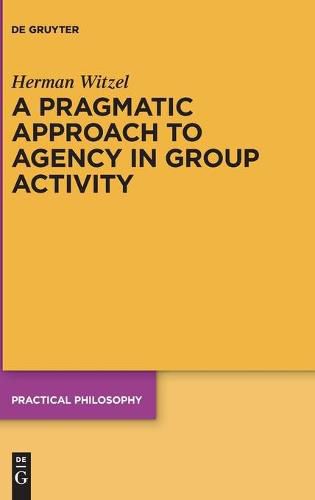Readings Newsletter
Become a Readings Member to make your shopping experience even easier.
Sign in or sign up for free!
You’re not far away from qualifying for FREE standard shipping within Australia
You’ve qualified for FREE standard shipping within Australia
The cart is loading…






A Pragmatic Approach to Agency in Group Activity builds towards an action theory that explains how new forms agency develop in group activity. The approach starts from practical insights about group activity and develops a new understanding of agency from there. This study shows how practical interactions and structures in group activity disrupt individual agency. It is concluded that important features of agency can be realized on a group level. Different types of group activities are analyzed in order to better understand these mechanisms and, consequently, revisit our understanding of agency. It is argued that intentionality, the key concept in individual action theory, merely serves as a pseudo-explanatory connection between specific features of agency and their realization in humans. This is contrasted with empirical research showing that how humans act is far from the idealized concept of intentionality. Consequently, intentionality as a key explanatory concept is rejected and replaced by a diverse set of features of agency for a similarly diverse set of kinds of agency. In this view, groups display new forms agency beyond individual agency without making the groups agents themselves. Such is the nature of group agency.
$9.00 standard shipping within Australia
FREE standard shipping within Australia for orders over $100.00
Express & International shipping calculated at checkout
A Pragmatic Approach to Agency in Group Activity builds towards an action theory that explains how new forms agency develop in group activity. The approach starts from practical insights about group activity and develops a new understanding of agency from there. This study shows how practical interactions and structures in group activity disrupt individual agency. It is concluded that important features of agency can be realized on a group level. Different types of group activities are analyzed in order to better understand these mechanisms and, consequently, revisit our understanding of agency. It is argued that intentionality, the key concept in individual action theory, merely serves as a pseudo-explanatory connection between specific features of agency and their realization in humans. This is contrasted with empirical research showing that how humans act is far from the idealized concept of intentionality. Consequently, intentionality as a key explanatory concept is rejected and replaced by a diverse set of features of agency for a similarly diverse set of kinds of agency. In this view, groups display new forms agency beyond individual agency without making the groups agents themselves. Such is the nature of group agency.